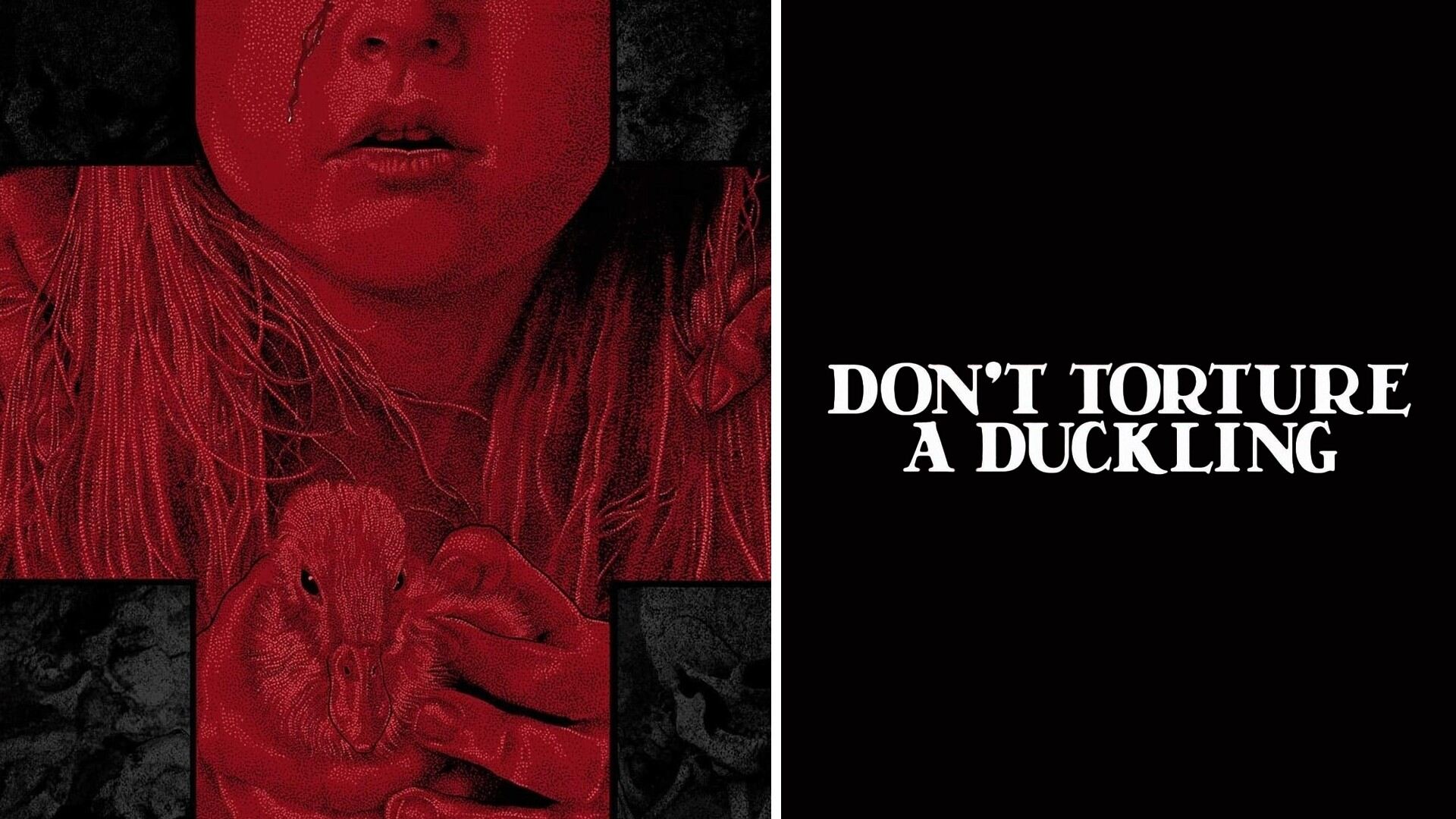
If you’re a fan of cult classics and Italian horror films, then you’re probably familiar with the movie “Don’t Torture a Duckling.” Directed by the legendary Italian filmmaker Lucio Fulci, this 1972 film is considered one of his finest and most controversial works. Combining mystery, horror, and social commentary, “Don’t Torture a Duckling” tells the chilling story of a series of child murders in a small, secluded Italian village.
In this article, we will delve into the fascinating world of “Don’t Torture a Duckling” and uncover 34 intriguing facts about the movie. From its controversial themes to behind-the-scenes anecdotes, we’ll explore the impact and legacy of this iconic horror film. So, grab your popcorn, dim the lights, and let’s dive into the macabre world of “Don’t Torture a Duckling.
Key Takeaways:
- “Don’t Torture a Duckling” is a gripping Italian movie that challenges traditional values and superstitions, with a haunting soundtrack and a thought-provoking exploration of innocence and corruption.
- The film’s impactful ending, strong female characters, and commentary on hypocrisy make it a cult classic, influencing future filmmakers and leaving a lasting impression on the audience.
Unique Plot
Don’t Torture a Duckling, directed by Lucio Fulci, is a 1972 Italian Giallo film that stands out for its gripping and unconventional plot.
Giallo Genre
The movie is a prime example of the Giallo genre, which is characterized by mystery, crime, and psychological thrillers.
Controversial Themes
Don’t Torture a Duckling tackles controversial themes such as religion, superstition, and small-town secrets, making it a thought-provoking film.
Stunning Cinematography
The movie boasts stunning cinematography that captures the beauty and eeriness of the Italian countryside where the story takes place.
Strong Performances
The cast delivers strong performances, bringing depth and authenticity to their characters.
Social Commentary
Don’t Torture a Duckling offers social commentary on issues like the corrupting influence of power and the dangers of close-mindedness.
Intriguing Title
The title itself is intriguing and draws curiosity, adding to the allure of the film.
Released in Multiple Languages
The movie was initially released in Italian as “Non si sevizia un paperino” and later translated into various languages for international audiences.
Influential Director
Lucio Fulci, known for his impact on Italian horror cinema, directed Don’t Torture a Duckling, showcasing his unique style and storytelling.
Critical Acclaim
The film received critical acclaim for its gripping narrative, solid performances, and atmospheric presentation.
Psychological Thriller
Don’t Torture a Duckling delves into the psychological aspects of its characters, creating an intense and suspenseful viewing experience.
International Cult Following
Over the years, the movie has gained a cult following among international horror fans, appreciating its distinctive storytelling and thematic depth.
Released in 1972
Don’t Torture a Duckling was released in 1972, in the heyday of Italian Giallo cinema.
Critically Examines Traditional Values
The film critically examines traditional values and societal norms, challenging viewers to question their own beliefs.
Atmospheric Soundtrack
The haunting and atmospheric soundtrack adds to the suspense and tension of the film.
Stands the Test of Time
Even after several decades since its release, Don’t Torture a Duckling remains a relevant and thought-provoking piece of cinema.
Gritty Realism
The movie presents a gritty and realistic portrayal of a rural Italian village, immersing viewers in its environment.
Exploration of Innocence and Corruption
Don’t Torture a Duckling explores the contrast between innocence and corruption, blurring the lines between good and evil.
Sensational Climax
The film builds up to a sensational and unexpected climax, leaving viewers on the edge of their seats.
Iconic Poster
The movie’s poster, featuring a sinister-looking hand gripping a duckling, has become iconic in the horror genre.
Psychological Depth
Don’t Torture a Duckling delves into the psychological motivations of its characters, challenging the audience’s perception of guilt and innocence.
Meticulous Direction
Lucio Fulci’s meticulous direction is evident throughout the film, creating a visually striking and suspenseful experience.
Addressing Taboos
The movie fearlessly addresses taboo subjects, paving the way for cinematic exploration into darker themes.
Exploration of Gender Roles
Don’t Torture a Duckling also explores the complexities and stereotypes surrounding gender roles in society.
Haunting Visuals
The film’s haunting and disturbing visuals linger in the mind long after the credits roll.
Exploration of Small-Town Secrets
The story revolves around the uncovering of deep-rooted secrets in a small Italian village, exposing the darkness hidden beneath the surface.
A Cult Classic
Don’t Torture a Duckling has achieved the status of a cult classic due to its innovative approach to storytelling and thematic depth.
Commentary on Hypocrisy
The film comments on the hypocrisy and double standards prevalent in society, particularly within religious institutions.
Subversive Narrative
Don’t Torture a Duckling subverts expectations and challenges traditional narrative structures, keeping the audience engaged and guessing.
Strong Female Characters
The movie features strong and complex female characters who defy stereotypes and have agency within the story.
Influence on Future Filmmakers
Don’t Torture a Duckling has served as an inspiration for future filmmakers, contributing to the evolution of the horror genre.
Exploration of Superstition
The film delves into the realm of superstition and the impact it has on the lives of the characters, blurring the line between belief and reality.
Thought-Provoking Social Commentary
Don’t Torture a Duckling offers thought-provoking social commentary that transcends its genre, challenging viewers’ perspectives.
Impactful Ending
The powerful and impactful ending of the movie will leave a lasting impression on the audience, prompting contemplation and discussion.
Conclusion
Don’t Torture a Duckling is a gripping and controversial film that has left a lasting impact on the world of cinema. With its thought-provoking storyline, stellar performances, and stylish direction by Italian maestro Lucio Fulci, this movie continues to be celebrated by horror enthusiasts and film critics alike.
From its exploration of religious superstition to its realistic portrayal of small-town prejudices, Don’t Torture a Duckling pushes boundaries and challenges societal norms. It serves as a stark reminder of the power and consequences of mob mentality, while also delving into the darkness that can lurk beneath even the most idyllic landscapes.
If you’re a fan of psychological thrillers and are looking for a movie that will keep you on the edge of your seat, Don’t Torture a Duckling is definitely worth a watch. Its clever combination of suspense, mystery, and social commentary make it a standout film in the horror genre.
FAQs
Q: What is the plot of Don’t Torture a Duckling?
A: Don’t Torture a Duckling follows the story of a journalist and a young girl who team up to investigate a series of child murders taking place in a small Italian village.
Q: What is the significance of the title “Don’t Torture a Duckling”?
A: The title refers to a scene in the film where a young boy is seen tormenting a duckling. It serves as a metaphor for the cruelty and innocence lost in a society blinded by ignorance and fear.
Q: Who directed Don’t Torture a Duckling?
A: The film was directed by Lucio Fulci, an Italian filmmaker known for his contributions to the horror genre.
Q: When was Don’t Torture a Duckling released?
A: The movie was released in Italy in 1972.
Q: Is Don’t Torture a Duckling a horror film?
A: Yes, Don’t Torture a Duckling is considered a psychological horror film due to its dark and suspenseful themes.
Q: Are there any controversial elements in the film?
A: Yes, the film tackles several controversial topics such as religion, child abuse, and societal prejudices, which sparked debates upon its release.
Q: What is the critical reception of Don’t Torture a Duckling?
A: The film received positive reviews from critics who praised its social commentary and powerful performances.
Q: Is there any on-screen violence in the movie?
A: Yes, Don’t Torture a Duckling contains scenes of violence, although it is not excessive or gratuitous.
Q: Where can I watch Don’t Torture a Duckling?
A: The film is available on various streaming platforms and can also be purchased on DVD or Blu-ray.
Q: Does Don’t Torture a Duckling have any English language options?
A: Yes, the film has been dubbed and subtitled in English for international audiences.
Was this page helpful?
Our commitment to delivering trustworthy and engaging content is at the heart of what we do. Each fact on our site is contributed by real users like you, bringing a wealth of diverse insights and information. To ensure the highest standards of accuracy and reliability, our dedicated editors meticulously review each submission. This process guarantees that the facts we share are not only fascinating but also credible. Trust in our commitment to quality and authenticity as you explore and learn with us.


